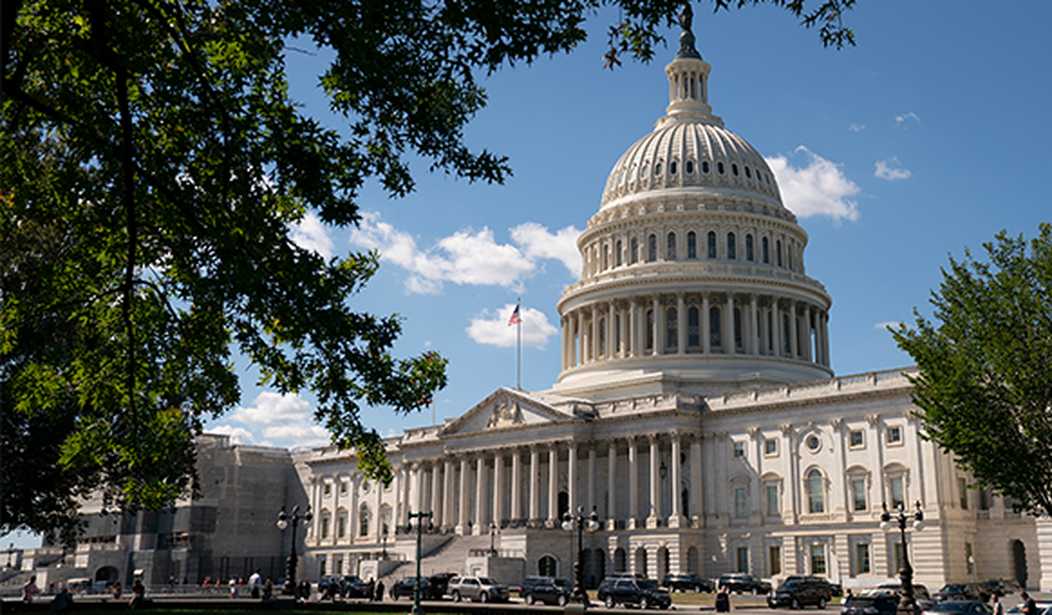Unless Republicans act, a bill under Congressional review will give trial lawyers new avenues to fleece American companies with frivolous lawsuits.
The House Energy and Commerce Committee recently approved the “American Data Privacy and Protection Act” (ADPPA), a watershed moment for federal privacy legislation. For the first time, Congress has a real opportunity to pass comprehensive privacy protections for American consumers.
Unfortunately, the current form of ADPPA contains numerous trial lawyer giveaways and could allow California to set national privacy standards. Given these problems, Republicans should not rush to pass ADPPA before the midterm elections.
Data privacy is an important issue – 56 percent of American voters support a federal privacy standard according to a poll by Morning Consult and Politico. The current patchwork of state privacy legislation is becoming increasingly untenable – if all 50 states enacted separate privacy laws, it could cost the U.S. economy $1 trillion over ten years, $200 billion of that burden falling on small businesses.
Lawmakers like Rep. Cathy McMorris Rodgers (R-Wash.) and Sen. Roger Wicker (R-Miss.) deserve enormous credit for introducing ADDPA after years of discussion on a national privacy framework. Given the stakes here, it is crucial that lawmakers get the legislation right and jettison provisions that would help trial lawyers.
The bill contains an expansive private right of action (PRA) that trial lawyers will weaponize to fleece companies for millions of dollars. Under the PRA, a trial lawyer could seek a remedy for highly subjective, “compensatory” damages like emotional distress, inconvenience, loss of opportunity, damaged relationships, and other arbitrary claims that are exceedingly difficult for defendants to disprove. The PRA would encourage trial lawyers to launch frivolous lawsuits in hopes that a company will settle instead of spending millions of dollars to defend against specious claims in court.
Recommended
While the ADPPA includes some state preemption, the bill does not preempt several existing private rights of action that trial lawyers currently use to shake down companies, like those found in California’s privacy law and Illinois’s biometric data law. It is unclear whether the ADPPA’s numerous exemptions only apply to the state laws as currently written, or whether the exemptions will apply to potential future changes in the law.
Worse yet, lawmakers added a provision during the markup that gives the California Privacy Protection Agency special authority to enforce federal law with the same expansive powers the agency already has under state law. Would this include the ability to impose fines on companies, bring suits in state court, and conduct rulemaking and onerous audits? One can bet that the California Privacy Protection Agency would certainly attempt to do all these things.
Despite the new provision, California is whining that a federal privacy bill would prevent California’s robust trial lawyer army from making a quick buck by shaking down companies. The California Privacy Protection Agency Board voted to oppose any privacy legislation that preempts state law, despite an Obama-era FTC Chair saying that a federal privacy bill would offer stronger protections than the California regime.
Republicans should also remain vigilant that Democrats do not add in harmful provisions at the last minute. For example, the original draft contained an unwarranted federal intrusion into the negotiations of private parties by banning joint-action waivers, which are agreements between consumers and companies to resolve claims on an individual basis.
Banning joint-action waivers would empower trial lawyers to file “mass arbitrations,” allowing them to make a killing while robbing millions of consumers of the chance to resolve individualized claims. Thankfully, this provision was removed, and Republicans should ensure that similar bad policies don’t make their way into what ultimately receives a vote on the House floor.
Any Republican eager to rush a privacy bill should remember that Democrat leadership has consistently dealt in bad faith during their time in the majority. Sens. Chuck Schumer (D-N.Y.) and Joe Manchin (D-W.V.) deliberately waited until after the Senate passed the CHIPS Act to announce the Inflation Expansion Act that was negotiated behind closed doors. No Republican should hand Democrats any more legislative victories after that cynical, partisan stunt.
While lawmakers deserve credit for making significant progress toward a national privacy framework, no Republican should vote for a final bill that contains trial lawyer giveaways. Instead of rushing to pass ADPPA before the kinks are ironed out, Republicans should resume discussions for a federal privacy bill after winning the majority in the midterm elections.
Tom Hebert is federal affairs manager at Americans for Tax Reform and executive director of the Open Competition Center.























Join the conversation as a VIP Member